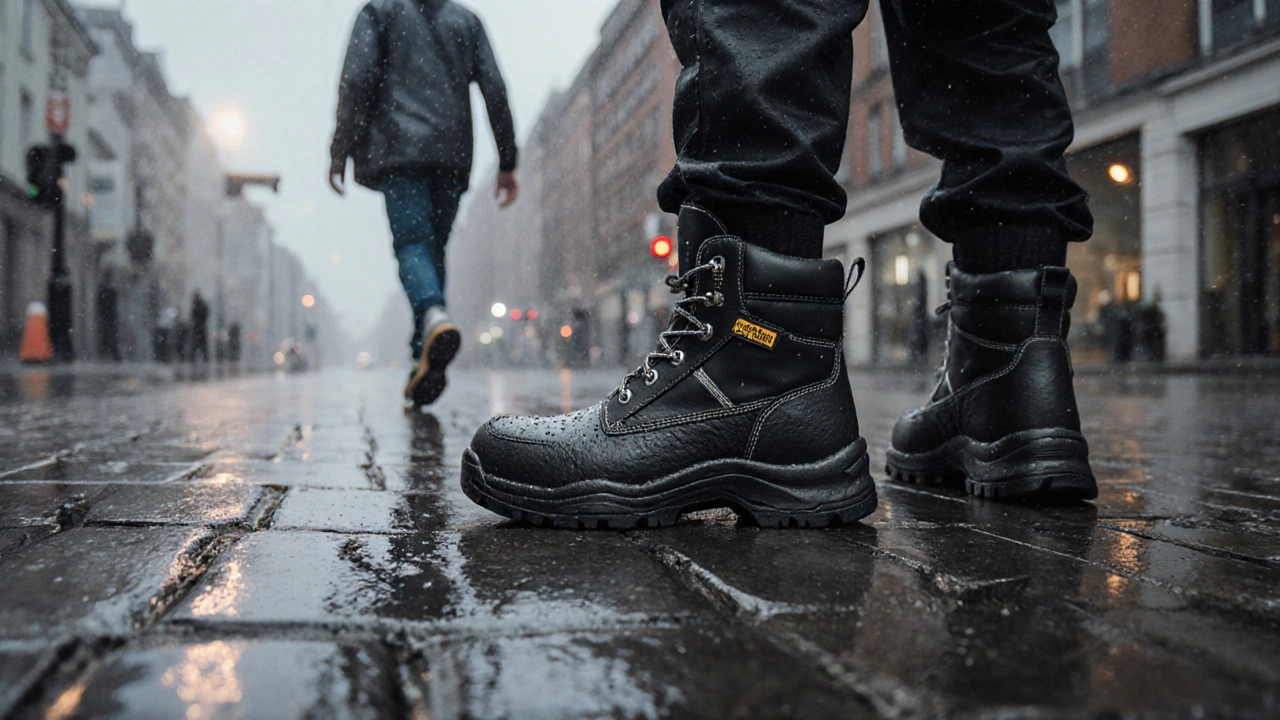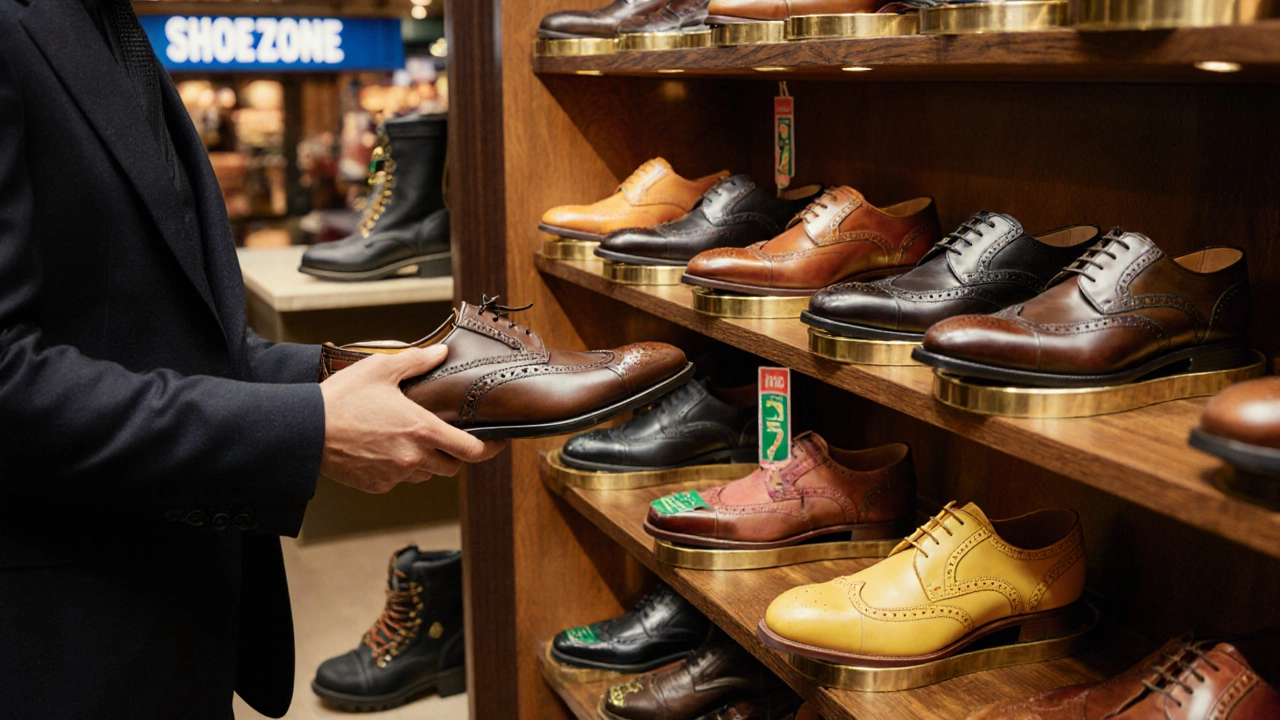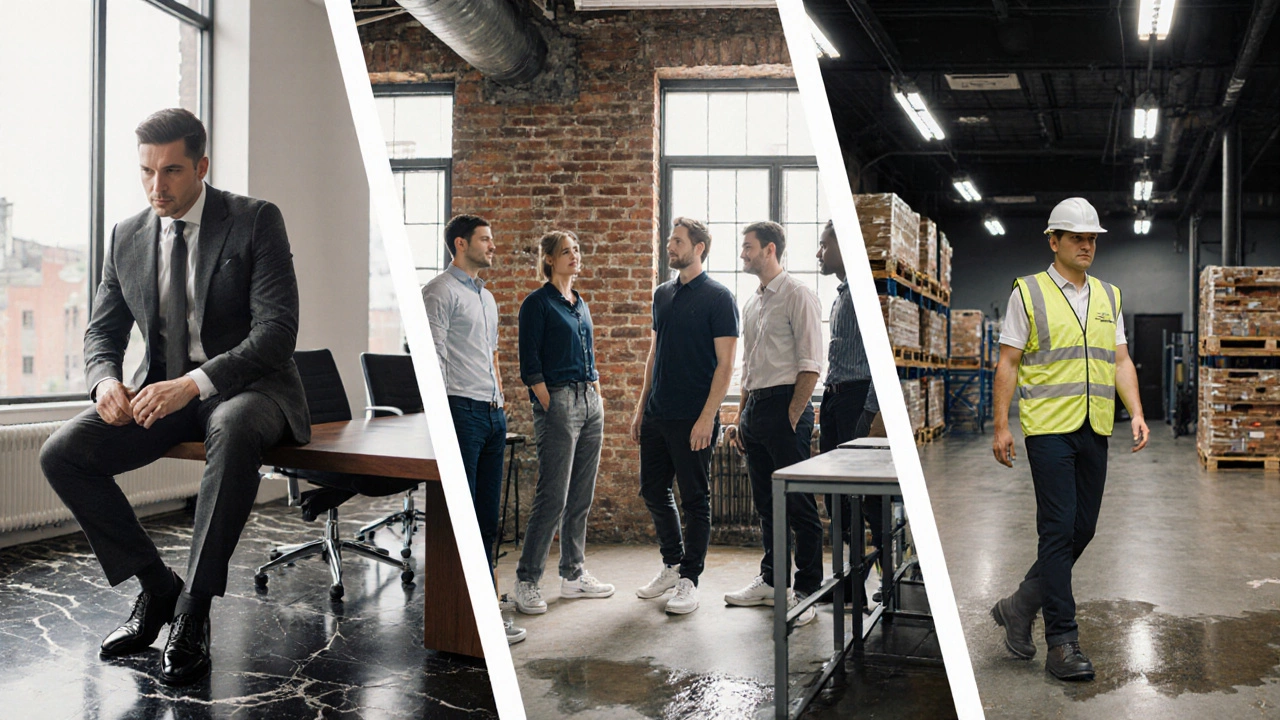Work Shoes Checker Ireland
What's Your Workplace?
Recommended Footwear
When you wonder Work shoes are allowed at work in Ireland, the answer hinges on the industry you’re in, the office culture in Dublin or Cork, and the legal safety rules that apply.
Understanding Irish Workplace Dress Codes
Irish companies range from ultra‑formal law firms on Baggot Street to relaxed tech start‑ups in the Silicon Docks. Most employers publish a dress‑code policy that distinguishes three zones:
- Formal zone - suits, shirts, and polished leather shoes.
- Business‑casual zone - chinos, smart polos, and neat loafers or clean trainers.
- Operational zone - warehouses, construction sites, kitchens, where safety‑rated footwear is mandatory.
Knowing which zone your role belongs to is the first step to picking the right pair.
Types of Work Shoes and Where They Fit
Below is a quick guide that matches common shoe styles with the typical Irish workplace environment.
| Style | Dress‑code suitability | Safety rating (HSA) | Typical price (EUR) | Best for |
|---|---|---|---|---|
| Formal leather shoes | Formal & business‑casual | None required | 80‑200 | Law firms, banks, corporate HQs |
| Safety boots | Operational only | EN ISO 20345‑type I | 100‑250 | Construction, manufacturing, oil‑&‑gas |
| Slip‑resistant shoes | Business‑casual or operational | EN ISO 20345‑type S | 70‑150 | Hospitals, kitchens, retail floors |
| Clean trainers | Business‑casual (tech firms) | None unless required | 50‑120 | Start‑ups, creative agencies |
| Polished loafers | Business‑casual | None | 60‑130 | Consultancies, marketing houses |
Pick a style that matches both the visual expectations of your team and any safety obligations.
Safety Regulations and the HSA
The Health and Safety Authority (HSA) enforces the Safety, Health and Welfare at Work Act 2005. Section 8 of the Act requires employers to provide suitable protective equipment, which includes footwear where there is a risk of slipping, crushing, or penetrating injuries.
Key points for Irish workers:
- If you work on a construction site, you must wear HSA‑certified safety boots with steel toe caps.
- In kitchens or hospitals, slip‑resistant shoes with a “S” rating are mandatory.
- Office workers are not legally required to wear safety shoes, but many firms still ban open‑toed sandals or high heels for liability reasons.
When in doubt, ask your HR department for the official footwear policy or request a copy of the HSA guidance relevant to your sector.

Seasonal Considerations in the Irish Climate
Rain is a year‑round companion in Ireland. A wet day in Dublin can mean puddles on O’Connell Street and slippery tiles in a Cork call‑centre. Choose shoes that handle moisture:
- Water‑repellent leather or treated canvas keeps feet dry.
- Rubber‑sole shoes provide extra grip on slick surfaces.
- For outdoor site work, look for boots with a breathable membrane (e.g., Gore‑Tex) that still meet EN ISO standards.
Investing in a quick‑dry insole and a good pair of wool socks can make the difference between a comfortable day and a drenched afternoon.
Where to Buy Appropriate Shoes in Ireland
Finding the right pair is easier when you shop locally. Here are some Irish retailers that stock shoes for every work zone:
- Brown Thomas on Grafton Street - high‑end formal leather shoes from brands like Clarks Ireland and Irish‑crafted options.
- Shoe Zone - budget‑friendly slip‑resistant trainers and loafers, with several stores across Dublin, Limerick and Galway.
- Specialty safety‑gear suppliers such as Direct Safety Ireland - carry EN‑certified safety boots and slip‑resistant shoes for industrial settings.
- Online Irish marketplaces like Adverts.ie - useful for finding gently used formal shoes at a fraction of the price.
Remember to check return policies; many retailers allow a 30‑day exchange if the fit isn’t right for a long shift.

Tips to Keep Shoes Comfortable All Day
- Break in new shoes gradually - wear them for 30 minutes at home before a full workday.
- Use anti‑slip insoles for extra grip on wet Irish streets.
- Rotate between two pairs to let the leather breathe.
- Keep a small shoe‑care kit (leather conditioner, waterproof spray) at your desk.
- Invest in a supportive arch insert if you suffer from flat feet - many Irish podiatrists recommend this for long‑standing roles.
Following these habits will extend the life of your shoes and keep your feet happy, even during a long Dublin commute.
Frequently Asked Questions
Do Irish offices allow sandals?
Most corporate offices in Dublin and Cork consider sandals too casual for the formal or business‑casual zones. However, some tech start‑ups with a relaxed dress code may allow neat flip‑flops on hot summer days, provided they don’t pose a safety risk.
Are safety boots required for warehouse jobs in Ireland?
Yes. Under the HSA’s regulations, any role involving heavy items, pallets, or forklift traffic must provide EN‑certified safety boots with steel toe caps and anti‑penetration midsoles.
What kind of shoes work best for rain‑prone days?
Water‑repellent leather shoes with rubber soles are ideal. They repel moisture while giving enough grip on slick cobblestones. For construction sites, a waterproof safety boot with a breathable membrane is the safest choice.
Can I wear clean trainers in a law firm?
Generally no. Most law firms adhere to a formal dress code that expects leather shoes. If your firm describes the dress code as “business‑casual”, a sleek, minimalist trainer in black leather might be acceptable, but always check the policy first.
Where can I find affordable HSA‑certified slip‑resistant shoes?
Retail chains like Shoe Zone stock certified slip‑resistant models at competitive prices. Online safety‑gear suppliers such as Direct Safety Ireland also run promotions for bulk purchases.
